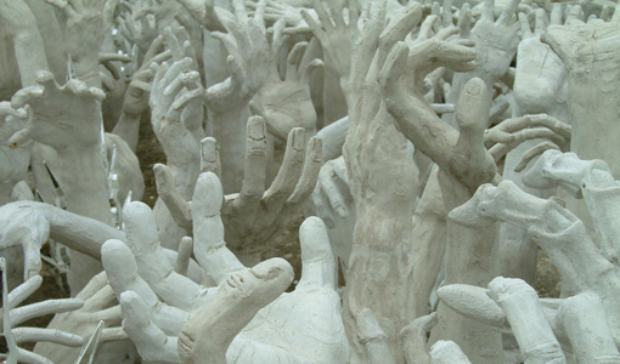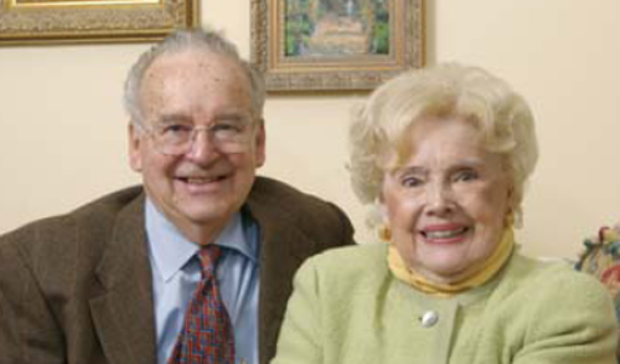An interdisciplinary department, Catholic Studies emphasizes connections between areas of study both within individual courses and in the department as a whole. Perspectives profiles three undergraduate courses regularly taught in the department.
The Catholic Studies department seeks to engage the whole person, imagination and spirit as well as reason and intellect. The study of literature, therefore, is an important component in the students’ course work. Great literature stands as a testimony to human achievement and opens students’ minds to artistic creativity and to the highest aspirations of the human spirit. A masterpiece of Catholic literature, Dante’s Divine Comedy is epic in scope, lending itself as all great literature does to multiple critical perspectives. It is thus particularly appropriate to the interdisciplinary goals of Catholic Studies.
Dr. Mary Reichardt, a Catholic Studies and literature professor, uses a variety of resources to help students engage the Comedy from various viewpoints. The class begins with several lectures and a film on the historical, political, and religious contexts of Dante’s medieval Italy and on Dante’s life as it relates to his writings. Next, literary precedents and sources are studied as students read portions of La Vita Nuova, and consider how, in this early work, Dante transforms the courtly love tradition and promises a sequel – a promise that the Divine Comedy fulfills. Students also read and discuss selections from Virgil’s Aeneid and other classic sources from which Dante drew.
“The Comedy testifies to the creativity of the writer who embodied faith into a living work of fiction. I was able to see the doctrines of the Church illustrated in a new way and in turn was able to understand those doctrines more fully.” — Stephanie Vaske
Several “Dante taught me that great works of art have the ability to reach down to the core of our being and raise us up to a level of faith not known or experienced before. Thus, authentic faith and true art always go together – art is one way God reveals Himself to us.” —Allan Eilen, seminarian early classes are devoted to linguistic matters. Students work through the first canto in Dante’s original Italian and then compare the effects of several English translations. Dante’s poetic technique – his overall “rule of three,” rhyme pattern, and terza rima meter – are examined. As the semester continues, students are also exposed to how the Comedy has been portrayed in art over the years, from the classic works of Sandro Botticelli and William Blake to the more contemporary renderings of Salvador Dali and Barry Moser.
These contextual matters are integral to the course’s primary focus, the Divine Comedy’s religious and spiritual significance. Dante’s Comedy, in fact, provides a veritable compendium of Catholic thought and teaching. Dante’s genius resulted from his ability to depict vividly the particular and definite in human experience while constantly evoking the ineffable and universal. While the Comedy is full of sobering news – all the sins and failings and foibles of human “Studying Dante’s Comedy was an extraordinary experience. Dante writes in a way that makes it impossible not to be changed by this work. I feel I have grown in my faith.” — Katherine Moyer life can be found here – it is also a work of astonishing hope and joy. Readers have been attracted to this poem for over six hundred years, not only because of its dramatic qualities, but also because it deals directly with the most fundamental metaphysical and moral questions: why God created us, the consequences of choosing evil over good, what happens to the human soul after death, and how to create a good society on earth.
“Studying Dante’s Comedy was an extraordinary experience. Dante writes in a way that makes it impossible not to be changed by this work. I feel I have grown in my faith.”— Katherine Moyer
Throughout the semester, students discuss a host of other Catholic issues raised by the work, such as the Church’s teaching on hell, purgatory, and heaven; the ties that unite believers, both living and dead, in the Body of Christ; the nature of free will; the seven deadly sins and the theological and cardinal virtues; God’s dual qualities of justice and mercy; the nature of the Trinity; mystical prayer; and the intercessory role of the Virgin Mary and the saints. “Both in his writing and in his personal life, Dante represents the true meaning of vocation. The Comedy expresses spiritual realities in tangible ways, showing how life is ultimately each individual’s journey towards God.” — Joseph LeFevre
Reichardt’s course takes seriously Dante’s stated intent to help his readers grow in faith, moving them from a life of sadness and emptiness to one of happiness and hope. As has often been stated, serious readers of the Divine Comedy always come face to face with themselves in the work.







